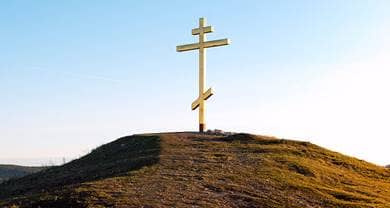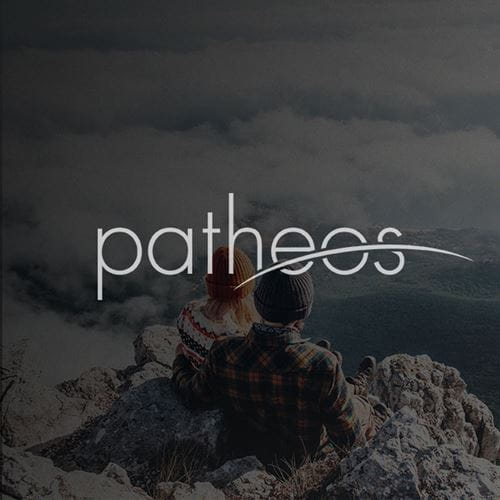- Trending:
- Forgiveness
- |
- Resurrection
- |
- Joy
- |
- Feminism
- |
- Afterlife

RELIGION LIBRARY
Eastern Orthodoxy
Principles of Moral Thought and Action
Eastern Orthodoxy does not differ from the larger Christian principles of moral thought and action in any way, but does offer a unique view on Christianity's promised redemption. It teaches a doctrine of theosis, or unity with God, which is a kind of deification that is available to all.
The Orthodox doctrine of theosis is grounded in several key New Testament scriptures. Throughout the epistles that bear his name, Paul repeatedly describes the Christian life as life "in Christ." In the Gospel of John, Jesus prayed, "My prayer is not for them alone. I pray also for those who will believe in me through their message, that all of them may be one, Father, just as you are in me and I am in you. May they also be in us so that the world may believe that you have sent me" (John 17:20-21). This mutual indwelling, God in us and we in God, is a constant theme in John's Gospel. In the Second Letter of Peter we read, "Through these he has given us his very great and precious promises, so that through them you may participate in the divine nature and escape the corruption in the world caused by evil desires" (2 Peter 1:4).
The goal of the Christian life, and its expected outcome, is to partake in the divine nature. This is theosis, or deification, and the idea merits special discussion so that its meaning is not distorted. The hoped-for mystical union between God and humans is a true union, but it is a union with God's energies, not the divine essence. Humans remain fully human and distinct from God. But they become perfected in grace, so that every element of ego and selfishness disappears and they are able to reflect the divine light. Few Christians will experience theosis before the Day of Judgment, but on that day, Christians will be resurrected and glorified by God, clothed in a spiritual body that radiates the divine light.
Still, deification begins in the here and now, in the daily lives of ordinary Christians. All Christians are called to follow God's commandments, and as long as they try to do so, however weak their efforts may be, or however often they may fail, they become in some way deified. Deification begins in repentance, and is nurtured through the normal routines of the Christian life. To become deified, the Christian should go to church, regularly participate in the sacraments, pray to God with honesty and great sincerity, read the Gospels, and follow the commandments. The most important commandments are love of God and neighbor. To love God is to live in and for others, which is why some of the greatest of the Eastern Orthodox saints are remembered for their service to others, such as St. Basil of Caesarea (c. 330-379) caring for the sick, or St. John the Almsgiver (d. 619) caring for the poor.
Sincere dedication to following the commandments and living life within the church bears with it the promise of redemption fulfilled in the resurrection of a radiant body and soul. But Christians may look forward to even more than this. The Bible speaks of a new heaven and a new earth (Revelation 21:1) and of the hope that the creation itself will be redeemed (Romans 8:22). In these scriptures, Eastern Orthodoxy sees the promise of a cosmic redemption, in which all of material creation is transfigured.
This belief in the redemption as deification rests in the Orthodox interpretation of the doctrine of the Incarnation. By choosing to become human, God became flesh and blood, thereby sanctifying material as well as immaterial creation. Because of this, all of material creation can look forward to its ultimate redemption, in which pain, death, and suffering will cease, along with hostility and enmity, and all of creation will be transfigured. The first fruits of this promise can already be seen as fulfilled in the divine power that works through the holy relics, in the divine presence in the icons, and in the radiant transfigured faces of the hesychasts.
Study Questions:
1. What is the doctrine of theosis? Why is it the goal of Eastern Orthodoxy’s moral thought and action?
2. Describe the process of deification. Where and when does it happen, and to whom?
3. Why is Jesus important to the Eastern Orthodoxy’s understanding of redemption?










